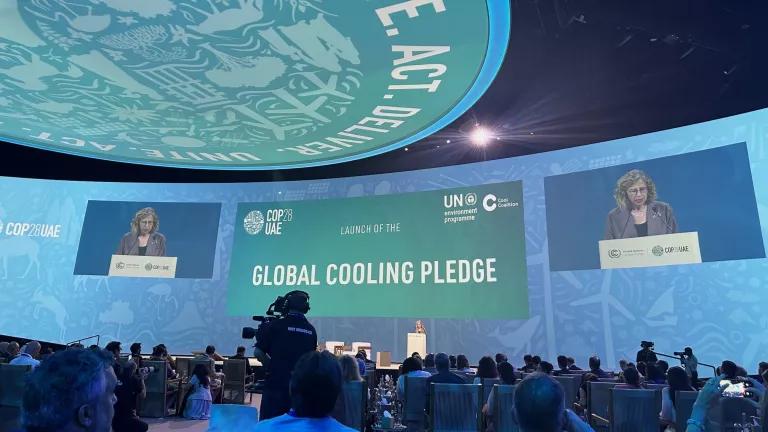World Wildlife Conference Will Decide the Fate of Otters
The countries of the world will vote in a few weeks on whether to protect Asian small-clawed and smooth-coated otters from poaching and international trade. Both species are declining fast, due in part to a gruesome trend in taking otter pups from the wild for use as pets and attractions in cafés and coffee shops. Much of the trade is online, driven by images of cute otters and other animals on social media. NRDC will be on the ground in Geneva to push for full protection for otters and all threatened species from poaching and international trade.

Asian small-clawed otter
In just a few weeks, the 183 countries belonging to the Convention on International Trade in Endangered Species of Wild Fauna and Flora (CITES) will vote on proposals that could help save two rare species of otter from extinction.
India, Bangladesh, Nepal, and the Philippines have submitted proposals to ban all international commercial trade in the Asian small-clawed otter and the smooth-coated otter. Final decisions on the proposals will be made during the 18th Conference of the Parties (COP18) to CITES, which will be held in Geneva, Switzerland, August 17-28. More than two-thirds of all the CITES Parties in attendance must vote to adopt the proposals for the bans to take effect, and NRDC will be there to make sure they do.
Currently, both the Asian small-clawed and the smooth-coated otter are listed on Appendix II of CITES, which allows regulated international trade. These new proposals would transfer the species to Appendix I, banning all international commercial trade.
Recent investigations by TRAFFIC, the wildlife trade monitoring network, paint a grim picture for both otter species. Their populations have declined drastically largely due to destruction of their habitat and exploitation for the global trade in otter skins and pet trade, according to the IUCN Red List of Threatened Species.
Unfortunately, nobody really knows how many otters there are in South and Southeast Asia, or just how many are being killed by poachers for global trade. Between 1980 and 2018, national authorities confiscated otter specimens more than 250 times, seizing specimens that came from more than 6,000 individual otters. But, because relatively little attention is paid to enforcement for these species, the specimens are rarely identified down to the species level (there are actually four species in the region), and the seizures that are reported likely represent only a small fraction of the overall illegal trade in otters in the region.
The pet trade is a growing threat to Asian small-clawed otters especially—they are popular attractions in zoos and increasingly in pet shops, pet fairs, and even in coffee shops, particularly in Japan. In just two years, between 2015 and 2017, 32 live Asian small-clawed otters, mostly juveniles, were confiscated in four countries (Indonesia, Malaysia, Thailand and Viet Nam), according to TRAFFIC. In January, 10 live small-clawed otters were discovered crammed into shipping crates and confiscated in North Viet Nam, and are now being rehabilitated by Save Vietnam’s Wildlife, an NRDC partner.

Captive otter in an "otter café" in Japan
Smooth-coated otters in particular are prized for their furs, and are often trafficked from South and, increasingly, Southeast Asia to China and other markets. Between 1980 and 2015, 2,949 illegal otter pelts were confiscated in India alone, and a significant number were likely smooth-coated otters given their desirability. The trade in live otters for pets is an emerging threat to smooth-coated otters as well.

Smooth-coated otter
For both species, online trade is making matters worse. Our partners at World Animal Protection recently released this alarming documentary about the trade in baby otters for use as pets and attractions.
Despite the discouraging images and figures, NRDC has been working with organizations around the world for over a year now to build the case for a ban on international commercial trade in smooth-coated and Asian small-clawed otters. We have helped assemble a coalition of groups in support of the proposals that includes international conservation and animal welfare organizations, national conservation groups, and small, local advocates for wildlife and habit protection.
The world will be watching as CITES parties vote on the fate of these social and intelligent animals that the public has come to love. We cannot stand idly by when faced with the possibility of losing otters forever, and we thank India, the Philippines, and Bangladesh for their leadership. The call to action is clear: We otter protect otters before it’s too late.



